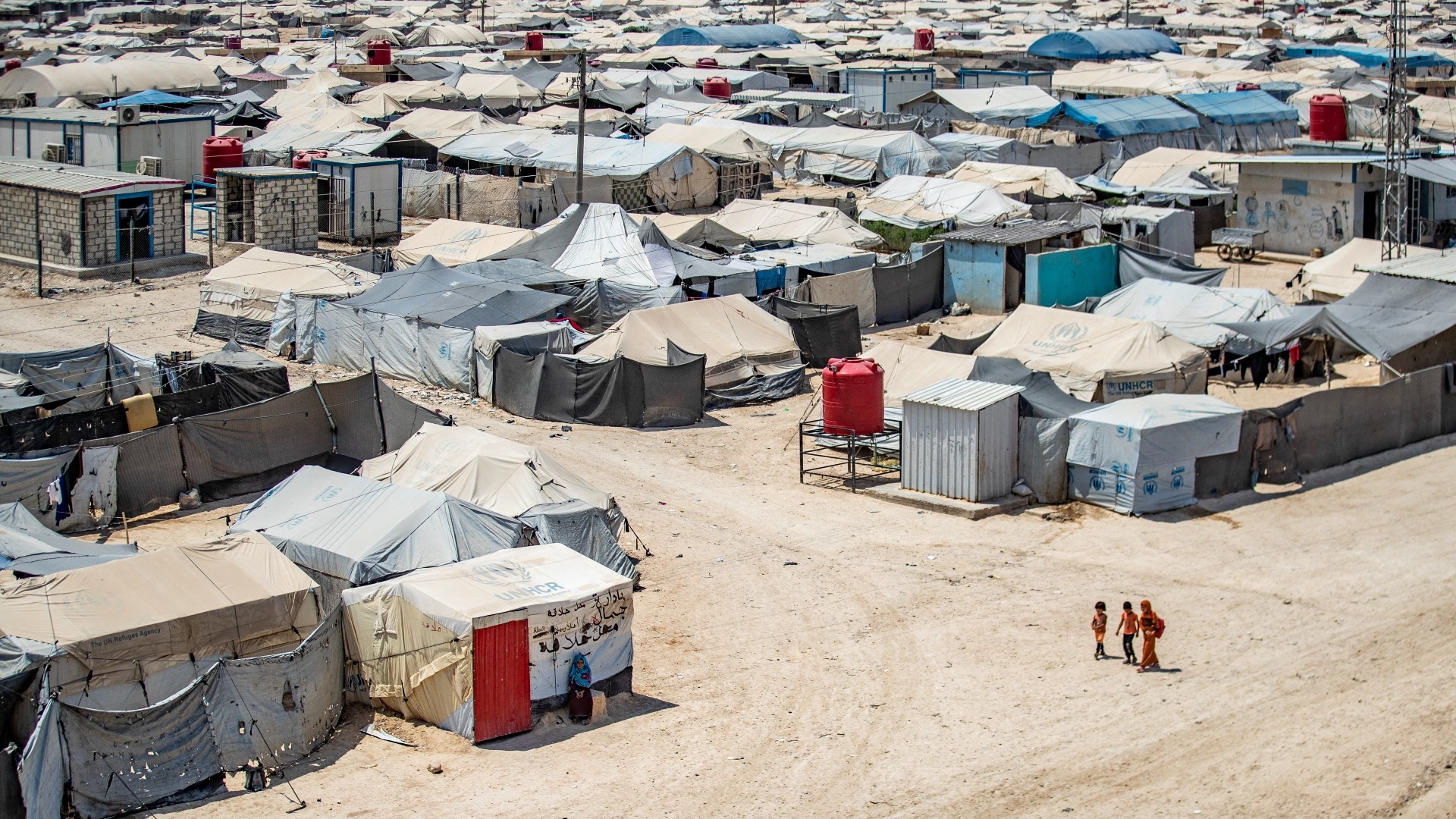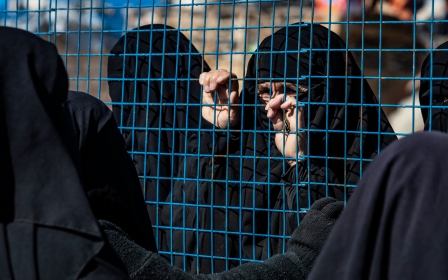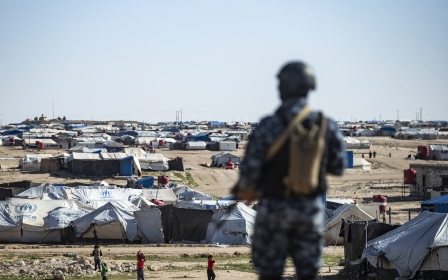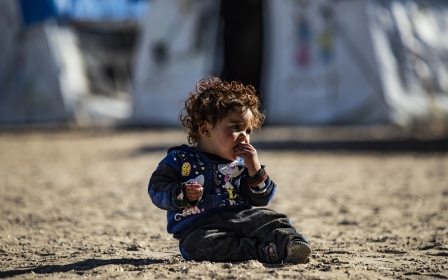Two British nationals repatriated from northeast Syria camps

A British woman and her child held in a camp alongside the families of suspected Islamic State (IS) members in northeast Syria have been repatriated to the UK.
Jonathan Hargreaves, the UK Special Representative for Syria, confirmed the repatriations in a Twitter post on Wednesday, following the visit of a British delegation to the Kurdish-controlled region.
Hargreaves wrote: “UK officials have facilitated the repatriation of two British nationals from Syria. In line with longstanding policy we consider each request for consular assistance in Syria on a case by case basis, taking into account all relevant considerations, including national security.”
Local media reported that Hargreaves and a British foreign office official met Badran Chia Kurd, the deputy co-chair of the Autonomous Administration of North and East Syria (AANES), in Qamishli on Tuesday.
After the meeting the woman and her son were handed over to the British delegation, according to the North Press Agency.
Asked for comment, a foreign office spokesperson referred Middle East Eye to Hargreaves' tweet. Kurdish officials did not respond to a request for comment.
In a statement, legal charity Reprieve told MEE it welcomed the repatriation.
“This woman was a victim of trafficking, taken to Syria by a male relative when she was a young girl. She and her child have suffered extreme trauma and we ask that their identities and privacy be protected,” said Maya Foa, director of Reprieve.
"Our research shows that the majority of the British women being held in prison camps in northeast Syria were trafficked by Isis for sexual exploitation and domestic servitude. Rather than reckon with their cases, the government has chosen to abandon them in life-threatening conditions.
"The UK should follow the example of allies including the US, France, Germany and the Netherlands and repatriate all British families from unlawful detention.”
The UK is among several western countries to have faced criticism from human rights monitors over their failure to repatriate nationals who are among thousands of detainees held in camps and prisons since the collapse of IS in 2017.
Approximately 10,000 men and hundreds of adolescent boys are held in 14 overcrowded prisons in Syria's northeastern Hasakah region. Women and children live in two camps, al-Roj and al-Hol, home to around 60,000 people: around 20,000 from Syria, 31,000 from Iraq, and up to 12,000, including 4,000 women and 8,000 children, from other countries.
Only a handful of British children have previously been repatriated from the camps. The UK maintains that it cannot provide consular assistance to British nationals in Syria because it does not have diplomatic facilities in the country.
UK 'lagging far behind'
In July, Rights & Security International (RSI), which has called on western governments to repatriate their citizens from Syria, said the UK was “lagging far behind its international allies in bringing to an end the torture and suffering of its nationals and former nationals trapped in northeast Syria”.
Welcoming the repatriation of the woman and her child, Sarah St Vincent, RSI's executive director, told MEE: "We call on the UK to end its tacit support for torture by immediately facilitating the safe return of all other British children and adults confined in the Syrian camps, and to do so in a way that does not separate families or distinguish based on whether someone is a parent or not.
"The UK should also end its legal powers allowing it to strip people of their British citizenship even when doing so will abandon a person to torture or potential death."
Kurdish officials say they have repeatedly asked western countries to repatriate their nationals. They say torture and degrading treatment are banned in the camps but concede they lack the resources to manage the facilities effectively.
The UK government has also been accused by the United Nations' human rights monitors of breaching international law over its use of controversial citizenship-stripping powers against its own nationals held in Syria.
In letters sent to the UK and Canadian governments in June, five UN special rapporteurs said the repatriation of all foreign nationals was “the only international law-compliant response to the complex and precarious human rights, humanitarian and security situation faced by those detained in inhumane conditions in overcrowded prisons or other detention centres in North-East Syria”.
The letters highlighted the case of Jack Letts, a British-Canadian man imprisoned alongside suspected IS fighters since 2017 and subsequently deprived of his British citizenship.
The special rapporteurs said they had strong grounds to believe citizenship-stripping powers were being used by the British government in an arbitrary manner amounting to a “violation of international law”.
According to the UN’s website, no British response to the letter has been received. Asked whether it had responded, a British government spokesperson told MEE: “We do not comment on individual cases.”
Other western countries are also facing legal pressure to repatriate more of their own nationals.
Last month, the European Court of Human Rights ordered the French government to re-examine its decision to refuse to repatriate two women held in al-Roj and al-Hol because of concerns about the "arbitrariness" of the process.
On Wednesday, the UN Child Rights Committee found that Finland had violated the rights of six Finnish children held in al-Hol camp. Three of the children have been able to leave Syria since their families took their cases to the UN in 2019, but three are still at the camp.
Middle East Eye propose une couverture et une analyse indépendantes et incomparables du Moyen-Orient, de l’Afrique du Nord et d’autres régions du monde. Pour en savoir plus sur la reprise de ce contenu et les frais qui s’appliquent, veuillez remplir ce formulaire [en anglais]. Pour en savoir plus sur MEE, cliquez ici [en anglais].




